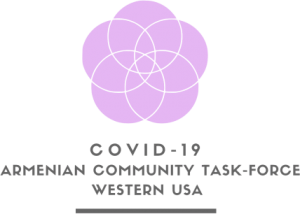
![]()
![]()
![]()
![]()
![]()
![]()
![]()
![]()
![]()
![]()
For all information related to student loans visit:
https://studentaid.gov/announcements-events/coronavirus
Family Learning Activities
Learning can happen anytime – even when schools are closed. Here are 10 fun family activities you can do with your children to keep little minds growing!
Bring a Book to Life
Draw pictures of your children’s favorite book characters and cut them out to make puppets. Use the puppets to act out a scene together. Bringing the story to life through dramatic play and retelling the story themselves helps children better understand character development and the storytelling process.
Create a Word Jar
While reading, new words are exciting for children! As you come across new words, write them down on a piece of paper and then flip to a children’s dictionary to write their definition on the other side. Collect these new vocabulary words in a Word Jar. At dinner, pick new words and make sentences out loud together. Build on this activity by drawing pictures depicting the new word to extend learning.
Fun with Family History
Write a story together about an important event in your family’s history. Illustrate your story and fasten it together into a book for the family library. Knowing where you came from is important to gain a strong sense of identity.
Let Your Child Be the Storyteller
Ask your child to tell you a story. It can be a new story or an old one with new twists or characters. Write down what your child says. Read it back to your child. Save the story to read it again. Let your child’s imagination inspire you to come up with your own adult stories to write down and share later.
Get Cooking
Bring math into the kitchen and include the whole family when preparing a recipe. Practice measuring out ingredients using different sizes of measuring cups. How many scoops does it take to make one cup? How many cups? How would you prepare the recipe for 24 guests?
Student Resources
6 Tips: How to help kids cope with extended school closures
Here’s top tips on helping prevent learning loss by making the most of children’s time at home from school.
Set the stage. Give children age-appropriate information, so they know what’s happening and how it will affect them.
Stay on schedule. Keeping wake time, bedtime and meal time consistent helps children maintain their daily rhythm and comforting routines.
Co-create plans. Give children a sense of control by involving them in daily decision-making, like choosing an activity or what they’d like for lunch.
Get moving. Counter inactivity by incorporating movement and physical exercise into your at-home time – designate outside time or have a dance party in the living room!
Eat well. Spending a lot of time at home can lead to boredom and unhealthy eating habits, so pay attention to food quality and involve kids in healthy snack and meal preparation.
Prioritize learning. Did you know you are your child’s first and best teacher? Use school resources, books and educational websites and apps. Get creative by turning everyday moments into brain-building opportunities. Most importantly, have fun learning together!
Our Picks: Free Educational Websites & Apps
If you have access to the internet at home, here is a list of fun, free educational websites as well as phone and tablet apps to help keep kids learning. Most sites include reading and math games, videos, stories and more and all indicate what are age and grade appropriate.
Preschool
Vroom: https://www.vroom.org
Sesame Street: http://www.sesamestreet.org
Bed Time Math: http://bedtimemath.org/minimath-app
PBS Kids: http://pbskids.org
Funbrain Jr: http://www.funbrainjr.com
Vroom
HOMER Reading: Learn to Read Fish School – 123 ABC for Kids Endless Numbers
Tiggly Shape’s Got Talent
Todo Math
Elementary School
Armenian Tree Project: https://www.armeniatree.org/en/interactive
Starfall: http://www.starfall.com
Learning Games for Kids: http://www.learninggamesforkids.com
PBS Kids: http://pbskids.org
Primary Games: http://www.primarygames.com
Arcademics: http://www.arcademicskillbuilders.com
Time for Kids: https://www.timeforkids.com
The Kids Page: http://thekidzpage.com
PBS Design Squad: https://pbskids.org/designsquad
Fun Brain: http://www.funbrain.com
Wonderopolis: http://wonderopolis.org
National Geographic for Kids: http://kids.nationalgeographic.com
Knowledge Adventure: http://www.knowledgeadventure.com
CoolMath 4 Kids: http://www.coolmath4kids.com
SuperCrew for Kids: http://www.superkidsnutrition.com/sckids/index.php
Make Me Genius: http://www.makemegenius.com
Discovery Mindblown: https://www.discoverymindblown.com
Scholastic: https://kids.scholastic.com/kids/home
Highlights for Kids: https://www.highlightskids.com
DIY: https://diy.org
KidsThinkDesign: http://www.kidsthinkdesign.org/index.html
A Homer Reading: Learn to Read Capstone Interactive
NASA Visualization Explorer
My Books – Unlimited Library VocabularySpellingCity
PBS KIDS Games
High School/Adults
H-Pem (Armenian): https://www.h-pem.com/en/
Library of Congress: https://loc.gov
Smithsonian Learning Lab: https://learninglab.si.edu
Ted Ed: https://ed.ted.com
CK-12: https://www.ck12.org/student/
Google Arts and Culture: https://artsandculture.google.com/explore
Google Arts & Culture has collaborated with over 1,200 museums, galleries and institutions in 70 countries to make their exhibits available for everyone online. With Google Arts & Culture you can visit top exhibits, zoom in on artworks in mind-blowing detail and browse thousands of stories, photos, videos, and manuscripts. Be your own curator by finding your favorites, creating your own collections and sharing them with friends.